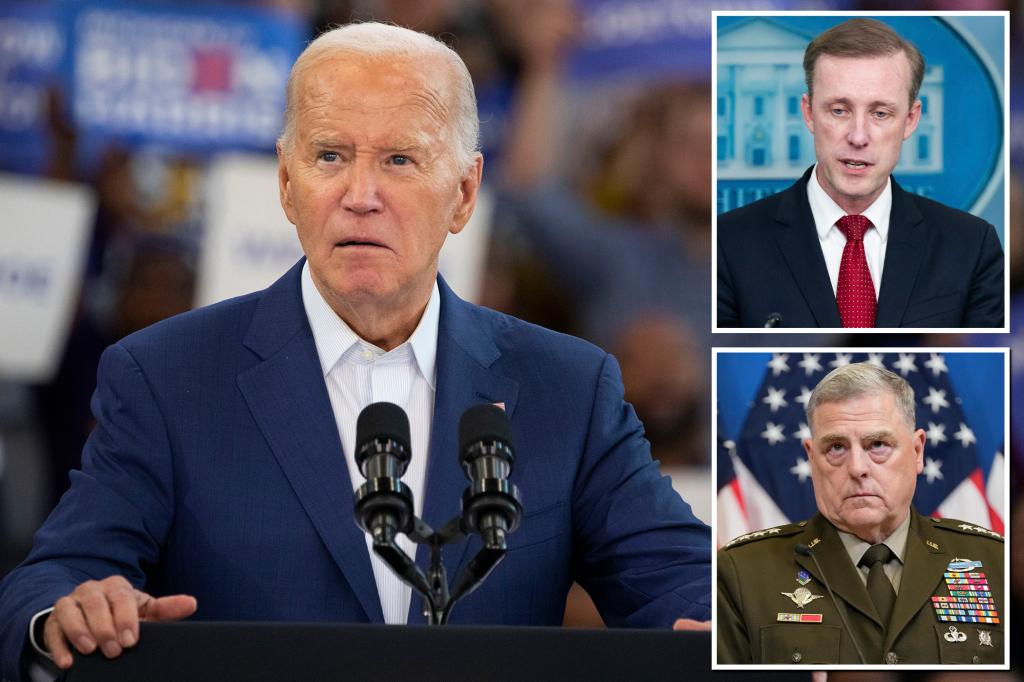President Biden’s aides denied any cognitive decline in the President, dismissing accusations as an optics problem until his disastrous debate with Donald Trump. Despite this, members of the Cabinet, National Security Council, and other senior advisers found the President commanding and well-prepared in briefings. Former Chairman of the Joint Chiefs of Staff Mark Milley attested to Biden being alert and doing his homework before every meeting.
Even as concerns about his mental acuity increased, Biden’s Justice Department official Maggie Goodlander felt compelled to record his phone calls with National Security Adviser Jake Sullivan to dispel rumors. Donors, however, were more candid, warning Biden that his age was affecting his campaign. Hollywood CEO advised Biden to avoid being caught shuffling on camera, further emphasizing the perception of him as old.
Despite the bubble forming around Biden to protect him, questions of cognitive decline continued to circulate, particularly following a report on the mishandling of classified documents. Special counsel Robert Hur chose not to prosecute Biden, believing that a jury would view him sympathetically as an elderly man with a poor memory. Biden took some responsibility for verbal stumbles, acknowledging that he tended to say everything he meant.
White House aides, including Chief of Staff Jeff Zients, denied that Biden had diminished mentally. Zients assured donors that Biden was driving the schedule and was eager to be fully engaged. However, public perception remained skeptical, with a majority of Americans believing Biden was too old to be effective. Friends of the President also noted his exhaustion and muddled appearance outside of working hours, suggesting a decline in his abilities.
While Secretary of State Antony Blinken believed Biden was still capable after the debate, he recognized that the 2024 race had become about Biden’s capacity. The private conversation with Blinken left Biden uncertain about his ability to lead in the future, leading to a coalition of influential donors and Capitol Hill Democrats pushing him to end his re-election campaign. Biden ultimately endorsed Vice President Kamala Harris as his successor, signaling the end of his presidential run.
In conclusion, despite ongoing denials of cognitive decline, internal assessments of Biden’s mental acuity were conflicting with public perception. Concerns about his age, exhaustion, and verbal stumbles led to influential figures pushing him to end his re-election campaign and endorse Harris as his successor. The President’s own doubts about his ability to lead in the future also played a role in his decision. Ultimately, Biden’s tenure as President came to an end, with questions about his mental faculties lingering.


